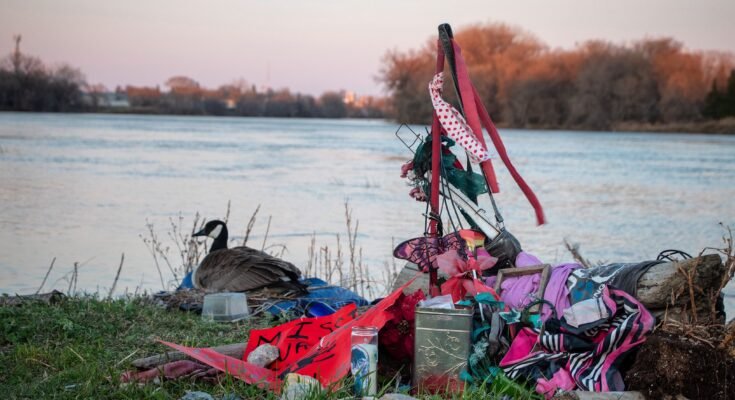By Emily Miller
Currently in the United States, Native American and Alaskan Native women face a disproportionate amount of gender-based violence, mostly perpetrated by non-Native men. The federal laws and Supreme Court decisions regarding tribal jurisdiction contain loopholes that allow non-Native men to assault Native women on tribal land and avoid prosecution. These loopholes have allowed an epidemic of violence against Native American women to seep through our country, and it is a serious issue that requires reform.
According to the U.S. Department of Justice, more than four out of five (84.3%) Native American and Alaskan Native women have experienced violence in their lifetime. Of those who experienced violence, 97% of those instances were at the hands of someone non-Native. They also found that Native American women are also ten times more likely to be murdered than non-Native women living in the United States. Clearly, the statistics regarding violence against Indigenous women are staggering.
But how do the perpetrators get away with it if it happens so frequently? In the 1978 Supreme Court case Oliphant vs. Suquamish Indian Tribe, it was decided that tribes have no criminal jurisdiction over non-Natives, even when they are on tribal land; this means that tribal law enforcement is not able to prosecute any violence committed against Native women (even on Native land), if the perpetrator is non-Native. According to Tyesha Wood, former police detective of sex crimes and citizen of the Navajo Nation, having sovereignty is extremely important to tribal nations. She said this case law “binds the hands of [their] law enforcement” when it comes to incidents of violence, especially sexual violence, of non-Native men against Native women.
Many men who are predisposed to committing violence against women know this and will target Native women living on reservations, knowing that they will most likely get away with it. The woman who suffered violence in such a situation could go to a federal attorney, and then it’s up to them to pursue the case or not; usually, they don’t. According to the Government Accountability Office, more than half of federal attorneys declined such cases in 2010; in 2019, data from the Department of Justice showed that about 35% of federal prosecutors declined such cases as well.
However, these legal loopholes are not the only culprits behind the violence against Native women, because these acts of violence are committed not only on tribal land, but also in urban areas against the Native American and Alaskan Native women who live in those areas. 71% of Indigenous women live in urban areas, not on a reservation. Unfortunately, data on murdered and missing Indigenous women (MMIW) cases that occur outside of tribal lands is very rare, because police departments often do not have these cases in their records, and even when they do, they might not have a classification for Native American and Alaskan Native women. Currently, there has been little research done on this. However, the Urban Indian Health Institute (UIHI) conducted a study of cases they could find in 71 cities across 29 states. They were able to find 506 unique MMIW cases that were not recorded by law enforcement. The oldest case was from 1943, but 80% of these cases occurred since 2000, and about two-thirds of them occurred between 2010 and 2018. According to the UIHI, this tells us that the actual number of MMIW cases in urban areas is much higher than the UIHI was able to find. Institutional racism allows the epidemic of violence against Native American women to continue both on and off tribal land by upholding legal loopholes.
Violence against Native American and Alaskan Native women has been an issue since the first colonizers arrived in America; now, hundreds of years later, there are still legal loopholes allowing violent and abusive men to commit these crimes with impunity. There is still much work to be done to close these loopholes and dismantle the institutional racism behind these violent acts against Native American women.
If you are or know a Native woman experiencing violence, you can call the StrongHearts Native Helpline at 1-844-762-8483 or the National Women’s Indigenous Resource Center at 1-855-649-7299.

 The Liturgical Calendar: Should Christians Observe It?
The Liturgical Calendar: Should Christians Observe It? Sweet Sensations with Baking
Sweet Sensations with Baking Embracing Authenticity in the Pursuit of Success: A Reflection on Journalism, Education, and Meaningful Academia
Embracing Authenticity in the Pursuit of Success: A Reflection on Journalism, Education, and Meaningful Academia Spring Concert: Music From Around the World
Spring Concert: Music From Around the World
Leave a Reply